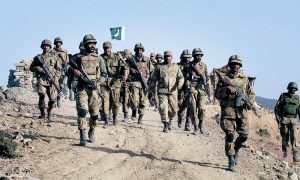After decades of militancy and Islamic terrorism, the country had been apparently salvaged by both the military and civil leadership and the widely held notion that the state had a secret nexus with militancy was finally ‘blotted out’.
Apparently, discontented with its extremely distressing state of affairs and infuriated by APS attack, the state started off its crackdown on militancy. Religious seminaries were questioned, the mantra of ‘Good’ and ‘Bad’ Taliban was strictly condemned and challenged and tempestuous demands were made to rescind the moratorium on death penalty. Military courts were also established in utter urgency for ‘expeditious’ dispensation of ‘justice’, on the principle of ‘extraordinary challenges, extraordinary measures.’
All attempts to Islamize the country eventually led to extreme sectarianism and religious terrorism. Laws inspired by religious interpretations are still under debate and have flaws that impede any smooth functioning.
Allowing such groups to operate and function openly is akin to mocking anti-terrorism laws and policies. Embarking on two trajectories simultaneously is not possible and will ultimately culminate in an extreme tumult and bedlam in the society.
The state and government should be clear and impose an immediate uniformity in all its ‘hierarchy’ to make sure there is no infiltration of extremist elements. Such irresponsibility can endanger lives of innocent minorities. We need to eradicate this confusion.













